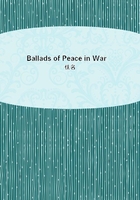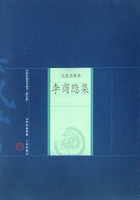During the campaign of 1813 the Allies, after driving the French out of Saxony and obliging them to retreat towards the Rhine, besieged Hamburg, where Davoust was shut up with a garrison of 30,000 men, resolutely determined to make it a second Saragossa. From the month of September every day augmented the number of the Allied troops, who were already making rapid progress on the left bank of the Elbe. Davoust endeavoured to fortify Hamburg an so extended a scale that, in the opinion of the most experienced military men, it would have required a garrison of 60,000 men to defend it in a regular and protracted siege. At the commencement of the siege Davoust lost Vandamme, who was killed in a sortie at the head of a numerous corps which was inconsiderately sacrificed.
It is but justice to admit that Davoust displayed great activity in the defence, and began by laying in large supplies.
--[Vandamme fought under Grouchy in 1815, and died several years afterwards. This killing him at Hamburg is one of the curious mistakes seized on by the Bonapartists to deny the authenticity of these Memoirs.]--General Bertrand was directed to construct a bridge to form a communication between Hamburg and Haarburg by joining the islands of the Elbe to the Continent along a total distance of about two leagues. This bridge was to be built of wood, and Davoust seized upon all the timber- yards to supply materials for its construction. In the space of eighty- three days the bridge was finished. It was a very magnificent structure, its length being 2529 toises, exclusive of the lines of junction, formed on the two islands.
The inhabitants were dreadfully oppressed, but all the cruel measures and precautions of the French were ineffectual, for the Allies advanced in great force and occupied Westphalia, which movement obliged the Governor of Hamburg to recall to the town the different detachments scattered round Hamburg.
At Lubeck the departure of the French troops was marked by blood. Before they evacuated the town, an old man, and a butcher named Prahl, were condemned to be shot. The butcher's crime consisted in having said, in speaking of the French, "Der teufel hohle sie" (the devil take them).
The old man fortunately escaped his threatened fate, but, notwithstanding the entreaties and tears of the inhabitants, the sentence upon Prahl was carried into execution.
The garrison of Hamburg was composed of French, Italian, and Dutch troops. Their number at first amounted to 30,000, but sickness made great-havoc among them. From sixty to eighty perished daily in the hospitals. When the garrison evacuated Hamburg in May 1814 it was reduced to about 15,000 men. In the month of December provisions began to diminish, and there was no possibility of renewing the supply. The poor were first of all made to leave the town, and afterwards all persons who were not usefully employed. It is no exaggeration to estimate at 50,000 the number of persons who were thus exiled. The colonel commanding the gendarmerie at Hamburg notified to the exiled inhabitants that those who did not leave the town within the prescribed time would receive fifty blows with a cane and afterwards be driven out. But if penance may be commuted with priests so it may with gendarmes.
Delinquents contrived to purchase their escape from the bastinado by a sum of money, and French gallantry substituted with respect to females the birch for the cane. I saw an order directing all female servants to be examined as to their health unless they could produce certificates from their masters. On the 25th of December the Government granted twenty-four hours longer to persons who were ordered to quit the town; and two days after this indulgence an ordinance was published declaring that those who should return to the town after once leaving it were to be considered as rebels and accomplices of the enemy, and as such condemned to death by a prevotal court. But this was not enough. At the end of December people, without distinction of sex or age, were dragged from their beds and conveyed out of the town on a cold night, when the thermometer was between sixteen or eighteen degrees; and it was affirmed that several old men perished in this removal. Those who survived were left on the outside of the Altona gates. At Altona they all found refuge and assistance. On Christmas-day 7000 of these unfortunate persons were received in the house of M. Rainville, formerly aide de camp to Dumouriez, and who left France together with that general. His house, which was at Holstein, was usually the scene of brilliant entertainments, but it was converted into the abode of misery, mourning, and death. All possible attention was bestowed on the unfortunate outlaws; but few profited by it, and what is worse, the inhabitants of Altona suffered for their generosity. Many of the unfortunate persons were affected with the epidemic disease which was raging in Hamburg, and which in consequence broke out at Altona.
All means of raising money in Hamburg being exhausted, a seizure was made of the funds of the Bank of that city, which yet contained from seven to eight millions of marks. Were those who ordered this measure not aware that to seize on the funds of some of the citizens of Hamburg was an injury to all foreigners who had funds in the Bank? Such is a brief statement of the vexations and cruelties which long oppressed this unfortunate city. Napoleon accused Hamburg of Anglomania, and by ruining her he thought to ruin England. Hamburg, feeble and bereft of her sources, could only complain, like Jerusalem when besieged by Titus:
"Plorans, plorcatrit in nocte."















